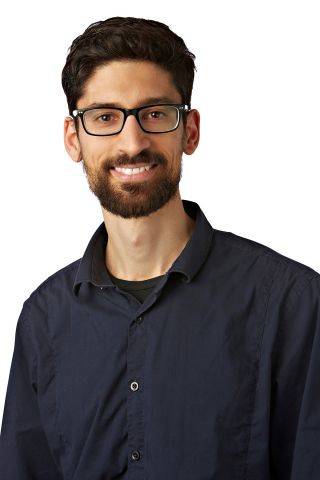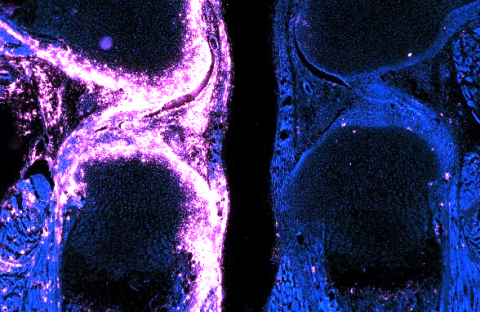Alberto Roselló-Díez – from Madrid to New York and now Melbourne

Madrid, New York, Melbourne. It reads like a fantastic holiday itinerary but in fact this is Dr Alberto Roselló-Díez’s real life story. He is the newest Group Leader recruit at ARMI. As of May, Alberto can say he has lived and worked in all three incredible cities. He has wasted little time getting going – already beginning to build his research group, having already recruited a very talented postdoc from Spain. So, what does a Group Leader’s day at ARMI look like? Alberto articulates, “I’m still transitioning, but so far, I think it involves a lot of planning and strategy at different levels: experimental design and analysis, management of people and time, writing projects and resource allocation”.
Alberto completed his PhD in molecular biology in Dr. Miguel Torres’s research group at the Autonomous University of Madrid, Spain, where he investigated early limb development in chickens and mice. His research career then took him to New York, joining the highly acclaimed Joyner laboratory at the Memorial Sloan Kettering Cancer Centre as a post-doc. It was here Alberto went on to study the regulation of limb growth using genetic models of unilateral insults in mice. Using these models, Alberto discovered that in response to developmental insults, local and systemic mechanisms interact. At ARMI, Alberto’s aim is to understand and harness the mechanisms that compensate for congenital or acquired growth defects. He reveals, “my goal is to grasp the responses that regulate bone growth after local impairment and understand the short- and long-range communication mechanisms that regulate growth within and between organs during vertebrate limb development and organ regeneration.” Alberto’s hope is that one day, his research will help us better understand why and how bone defects develop in humans, as well as why growth restrictions, like placental defects, affect foetal growth.

So, what attracted the Spaniard to ARMI? Alberto says it was three-fold, “one, ARMI has an unusual combination of scientific talent, technical resources and capable management.” He goes on, “two, I also like its diverse approach to regenerative medicine and studying multiple tissues from different angles.” And “thirdly, I think Australia combines a solid science model, like the North American one to a certain extent, with the quality of life and social system of many European countries”. One thing he’s looking forward to most in Australia, other than joining the ARMI and Monash University community, is travelling around Australia with his family to visit the many natural wonders the country has to offer.
According to Alberto, one of the highlights of his career so far has been when he was selected as a student for two remarkable events: The Lindau Meeting of Nobel Laureates (2007) and The Embryology Course at Woods Hole (2009). He explains, “the people I met and the things I learned there had a very strong influence on my subsequent career.” So what advice does he give to aspiring young scientists starting their own research careers? Alberto quotes Jedi Master Yoda: “Do it or don’t. There is no try”. He explains, “the best thing for me is the inception of a hypothesis: that moment when you combine the results of your experiments with the available literature and suddenly, in your mind, everything clicks into place.” The most challenging part is “dealing with people – because no amount of training can prepare you for the unpredictable.” And what does Alberto think are the best skills to have as a researcher? Another Star Wars classic, “may the FORCE be with you: Fervour, Open-mindedness, Resilience, Creativity and Ethics.” He also adds “of course, manual dexterity is also important in the early stages.”
Welcome to ARMI Alberto.
For more information on Dr Alberto Roselló-Díez and his group at ARMI, please visit the Roselló-Díez Group page. You can contact Dr Alberto Roselló-Díez via alberto.rosellodiez@monash.edu or follow him on Twitter @RoselloDiez.
